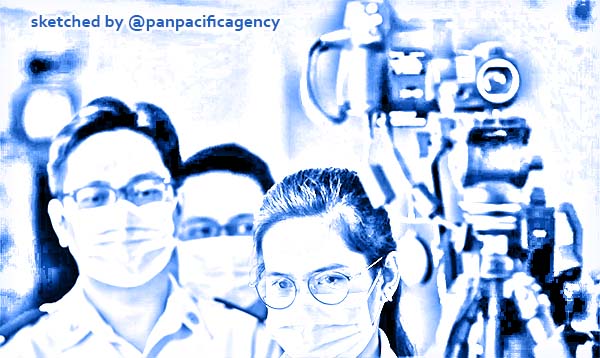Fiji extends coronavirus travel ban amid growing concerns

Airport personnel monitor a thermal scanner as passengers arrive at the Ninoy Aquino International Airport in Pasay. Photo: Reuters. Sketched by the Pan Pacific Agency.
SUVA, Feb 27, 2020, RNZ. Fiji has announced new travel restrictions amid growing concerns the covid-19 coronavirus is spreading across the globe, Radio New Zealand reported.
Prime Minister Frank Bainimarama said travellers who had been in Italy, Iran and the South Korean cities of Daegu and Cheongdo would not be permitted entry into Fiji.
The new measures follow the earlier travel ban imposed on all visitors who had been in mainland China within 14 days of their intended travel to Fiji.
Mr Bainimarama said thermal scanners would also be installed at all the country’s ports of entry on 2 March.
From 28 February, all cruise ships entering Fijian waters would be required to make first berth at ports in Suva or Lautoka, where all passengers on board would undergo medical and travel history checks.
“We’re introducing these new security measures because we believe the health of our people must always come first. The global economy is taking a big hit from the spread of covid-19. And Fiji will feel the impacts as well.”
There were currently no suspected or confirmed cases of the virus in Fiji, he said.
Mr Bainimarama said as the global situation evolved, so would Fiji’s response and he assured the nation the government would continue to “protect our borders to reduce the risk of an outbreak in Fiji”.
It also remained “vital” that all Fijians “relied exclusively on trusted sources of information” for their covid-19 updates, namely the WHO and the Ministry of Health and Medical Services, he said.
Meanwhile, the Asian Development Bank has approved $US2 million worth of funding to help developing countries in Asia and the Pacific contain the outbreak of the coronavirus and improve resilience to communicable diseases.
The funds will be available for all ADB developing member countries in updating and implementing their pandemic response plans.
The work will be conducted in close collaboration with the World Health Organization.
In February, the ADB provided $2 million to strengthen the immediate response capacity in a number of Asian nations.